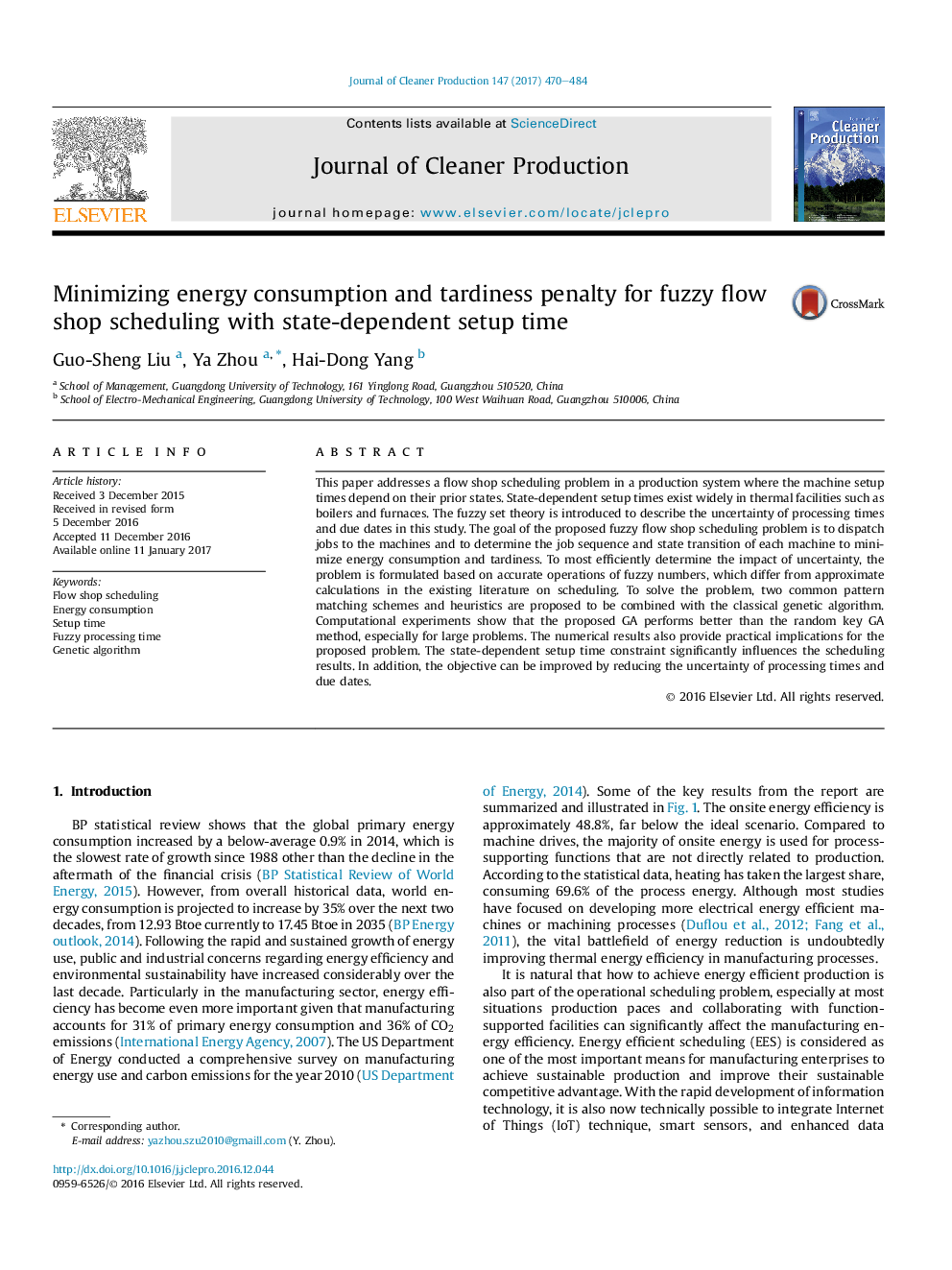ترجمه فارسی عنوان مقاله
صرفه جویی در مصرف انرژی و جریمه تخلیه برای برنامه ریزی جریان فازی با زمان تنظیم وابسته به دولت
عنوان انگلیسی
Minimizing energy consumption and tardiness penalty for fuzzy flow shop scheduling with state-dependent setup time
| کد مقاله | سال انتشار | تعداد صفحات مقاله انگلیسی |
|---|---|---|
| 89645 | 2017 | 15 صفحه PDF |
منبع

Publisher : Elsevier - Science Direct (الزویر - ساینس دایرکت)
Journal : Journal of Cleaner Production, Volume 147, 20 March 2017, Pages 470-484
ترجمه کلمات کلیدی
جریان فروشگاه برنامه ریزی، مصرف انرژی، زمان راه اندازی، زمان پردازش فازی، الگوریتم ژنتیک،
کلمات کلیدی انگلیسی
Flow shop scheduling; Energy consumption; Setup time; Fuzzy processing time; Genetic algorithm;

